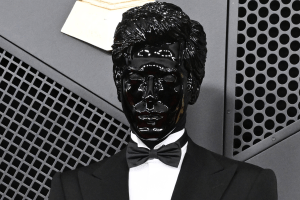New evidence in the murder of photographer Theresa Halbach has the potential to exonerate Steven Avery.
Kathleen Zellner, Avery’s appeal attorney, filed a 113-page document on Thursday arguing for a judge to reconsider her client’s case, disclosing compelling new evidence that she believes proves Avery’s innocence of the crime.
Videos by PopCulture.com
In the motion filed, Zellner claims that there is evidence that Halbach left Avery’s auto salvage yard alive on the day that she was murdered. She also claims that recent forensic testing on a bullet found in Avery’s garage found “no particles consistent with bone,” but rather wood particles that support an “alternate theory that the bullet struck a wooden object and not a human skull.”
It was alleged that Avery shot Halbach through the head, and the bullet found on his property previously never underwent forensic testing.
The documents also delve into claims that Avery’s nephew, Bobby Dassey, is a reasonable suspect in the case. Zellner alleges that the state failed to turn over details of a forensic report of Dassey’s computer. A recent forensic test on the computer found “images of Ms. Halbach, many images of violent pornography involving young females being raped and tortured, and images of injuries to females, including a decapitated head, bloodied torso, a bloody head injury and a mutilated body.”
Zellner’s claims are supported by a signed affidavit filed to the Manitowoc County court, which were obtained by Newsweek. In the affidavit, Dean Strang, one of Steven Avery’s lawyers in the initial trial, says that he was ineffective.
“I did not have a strategic reason for these decisions,” said Strang in the affidavit. “My client, Mr. Avery, is not to blame for them in any way and he met his obligations to me and Mr. Buting. If someone is to blame for these decisions, it is I.”
Steven Avery, who is currently serving a life sentence, was convicted of the 2005 murder of Theresa Halbach. He has maintained his innocence throughout the investigation and subsequent trial and claims that he was framed for the murder.
The Netflix documentary Making a Murderer, which explored the inconsistencies in the police investigation and the trial, forced Avery’s case into the spotlight.








